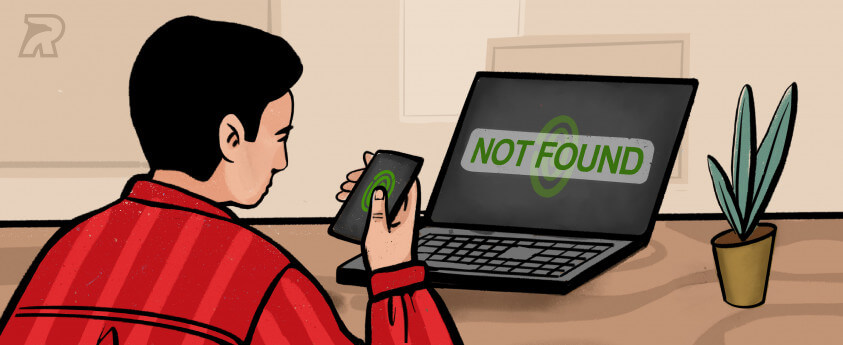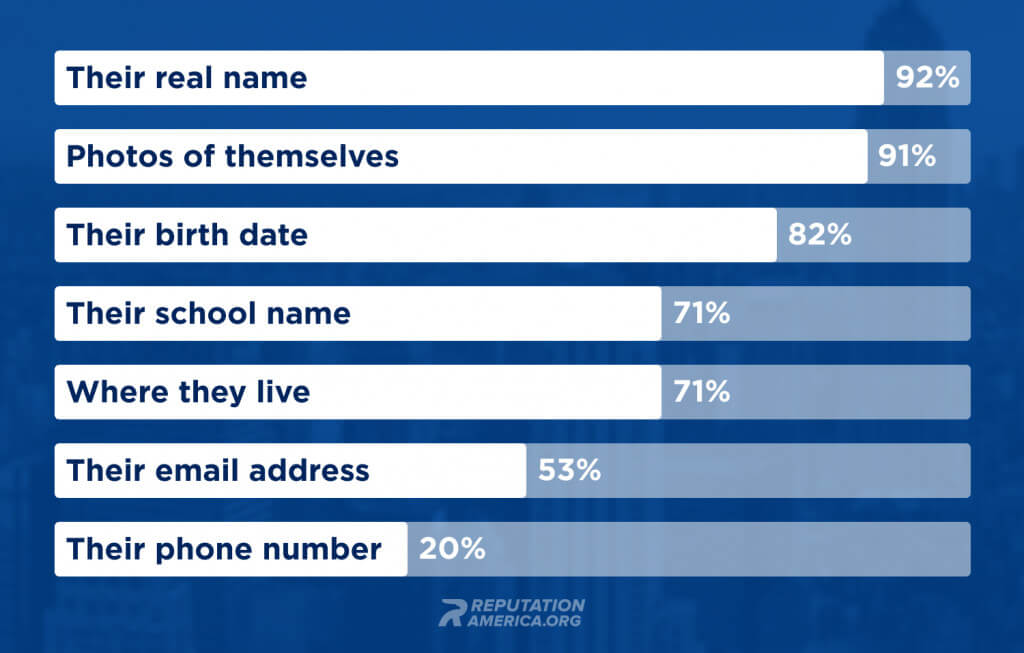How to Clean Up the Mess and Leave a Positive Digital Footprint

Unfortunately, you cannot completely remove your digital shadow from the Internet, but you can instill digital hygiene in your life and delete all irrelevant and old personal information.
Marketing managers have a widespread quote: If you are not paying for something, you’re not the customer; you’re the product being sold. That’s the key idea of the monetization of many services: social media, video hostings, and search engines. We are just a set of data in a goldfish bowl.
Can we reduce our cyber footprint on the Web? Will it make life safer? Where does our personal data leak to? Let’s figure it out.
Table of contents
Why Does our Data Leak to the Internet?
To remove your online footprint, you’ll have to move away from your usual lifestyle.
Let us remind you of the dystopian novel 1984 by Gorge Orwell. Big Brother was watching everyone, everywhere and always. In real life, the telecom industry, banks, Internet companies, governments, and retailers collect our personal data.
CEO I have completely switched off privacy settings. I can’t hide my digital footprint, as I know that it doesn’t make sense. We live now in an open globalized world. The more you remember that you are being tracked, the easier and calmer life will be.Arsenii
By various estimates, the American big data market is valued at 20 – 25 billion U. S. dollars. That’s how much our cyber footprint is worth. Data buyers are interested in what we search, where we go, what posts we write on social media, and even what we read, watch and listen to.
The following two questions appear: Should we worry about it and how do we protect as much personal data as possible?
The first answer is that we are not able to change the situation globally – the data generation pipeline works fine. You can take offense, protest, and complain, but its wheels are turning and don’t ever seem to stop.
Is it possible to protect at least some data so that it is not used by intruders? Yes. Let’s figure out how to remove the digital footprint.
Is Data Availability Dangerous?
By using open resources, people make investigative reports, search for missing people, and analyze public mood.

A social experiment was conducted in Belgium. A tent with a clairvoyant inside was set up in the street. People were made the offer to have their minds read – the seer told everything about their personal life. All the visitors had to do was give a name. The wizard revealed increasingly detailed information about their lives, including loan amounts, family problems, addresses, and so on. People were amazed because only their friends and relatives knew such facts about them.
The magic was happening in a nearby tent where top-notch data experts were working. Knowing the name of a person, they found all the inside facts about them in databases and social networks. The magician simply dramatically reproduced what was whispered to him in a hidden earbud.
The interesting thing is that this experiment was carried out in 2012. Since then, new methods of collecting information have emerged, so data availability has maximized.
That’s the way the world now works – everyone leaves a digital shadow. It can be partially erased, but some scraps of information remain. They also come to light in quite obscure places.
We were looking for a reviewer. We knew that this was a woman living in the United States. We also had an old post with a poor-quality picture. The text was about a dog named R**. We searched for information about dogs with such names and found her social media footprint.Case
Read more cases
Digital Footprint on the Internet: Where it Comes From
So, let’s figure it out and trace where the breach is hidden. The biggest part of the digital footprint accumulates passively while you use services, search for information, etc.
Cookies are the old method that websites use to collect the personal information of their visitors.
These are small files that browsers keep on your computer after your first visit to the site in order to trace activity. Cookie files can store users’ preferences and settings that allow the website to provide an optimal experience tailored specifically for each user.
Cookies also store account data to make the log-in easier. Due to them, websites save passwords so that we don’t enter them every time.
There are three main types of cookies.
Sessional cookies. These are used while you are visiting the site. As soon as you close the tab, the cookie disappears.
Persistent cookies. These are stored on the user’s computer for some time and are used generally for authentication. With them, the website identifies who you are.
Third-party cookies. When someone talks about a digital footprint in marketing, they mean these types of cookies. They inform advertisers about what content you read if you are looking for a specific product in an online store, your location (via your IP address), your device configuration, how long you spent on a specific site, and so on.
Cookies are not as bad as they may seem. You should just be aware that whenever you accept the cookie policy, the activity will be recorded and analyzed by marketers. So, cookies are specifically designed to trace your online footprint for targeted advertising.
How to Clean Up your Digital Shadow
If you wonder whether you can remove your digital footprint, we can say that it is partially possible. There are always bits of information left: a self-evident truth that no one has yet managed to defeat.
If you plan to remove a digital footprint, here are the statistics showing the clues that are used to find information about a person.

This does not mean that you can leave your phone number far and wide, just that your real name and photo are enough to find all your personal information.
Positive digital footprint examples have nothing in common with discriminatory comments, cyberbullying, or embarrassing photos. Remove items that present you in a bad light and nothing will threaten your life or reputation. To get rid of old or bad Internet traces, follow these tips:
Clean up your social media footprint. Look at your posts for all time. You may have previously published confidential data. For attackers, anything can become a clue, even the VIN of a car. Users who regularly use social media quickly forget what they wrote a year ago or which groups they are subscribed to. These are all bits of data that reveal a person’s identity. A negative digital footprint in social media can even affect your chances of gaining a job or a place at college.
Adjust privacy settings. To clear your digital footprint (at least partially), remove your home address from open sources, make your personal account private and unfriend people who you don’t know. This will help you to build a positive digital footprint and keep strangers from gaining access to your private data and posts.
Get a new SIM card to link important accounts. The main contact number should remain unlinked.
Delete accounts you no longer use. Try to remember all the sites on which profiles were created. Remove them using internal settings. If this cannot be done, change the data so that the account does not lead to you.
If You Need to Remove Information from a Third-party Site
Don’t risk your time, money, and nerves – contact Reputation America.

We will help you remove irrelevant, outdated, and negative information legally and secretively. We solve the problem between the client and the author of the publication. We find the pressure points of both parties, negotiate and get the negativity removed.
Our job is your peace of mind for your reputation and a positive digital footprint on the Web. Grow your business and let us solve the problems of negative information.

We will help to protect your reputation in your hour of need
It’s free, confidential, and without obligation







This article does not have any comments. Be first to leave one.